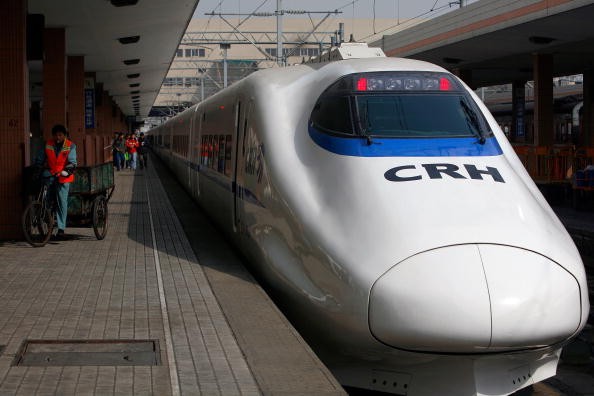China is expected to supply next-generation bullet trains for Russia's Moscow-Kazan line by 2020. These trains are capable of traveling at 400 km per hour and could enhance China as the world's leader in high-speed rail products and services.
The line will run through seven Russian regions with a total population of more than 25 million. It is approximately 770 km long and it will use regular high-speed trains rather than magnetic levitation trains.
Yang Guowei, a researcher at the Institute of Mechanics of the Chinese Academy of Science in Beijing, said: "To ensure the operation, China will test the 400 km/h train in a selected part of the 709-km Beijing-Shenyang high-speed railway line."
Yang's team is responsible for the design and shape of the high-speed trains.
Yang stated that China will be able to produce cargo trains for transporting industrial equipment, high-end products and regular goods at speeds ranging from 120 to 250 km-per-hour between Asia and Europe by 2020.
According to data on the website of the National Railway Administration, China currently has the technology to make electric multiple-unit passenger trains with speeds reaching between 200 and 250 km-per-hour. Through innovation and development, they already have established a platform for producing trains with speeds of 350 km-per-hour in the future.
"This could help China build cross-border high-speed train services with its neighboring countries that can alternate between different track gauges, ranging from 60 centimeters to 1.676 meters," said Jia Limin, the head of China's high-speed rail innovation program under the management of China Railway Rolling Stock Corp.
CCRC is China's rail vehicle manufacturer and exporter. It is trying to overcome technical barriers in pushing the development of magnetic levitation trains with speeds of up to 600 km-per-hour in its Qingdao Research Center located in Shandong Province.
Weng Mengshu, an academician at the Chinese Academy of Engineering, said that it will take time to test the safety and control of the train if its speed is increased to 400 km-per-hour.
In Weng's opinion, China should be investing in expanding domestic lines with faster train speeds rather than in high-speed railway networks overseas.



























